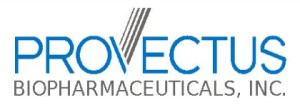- Pharma’s Big New Cancer Drug May Be an Old Red Dye
Rose Bengal (PV-10), a cheap industrial chemical that turns yarn and food bright red, has been used as a diagnostic staining agent for some time. Now, some scientists are looking at its potential to fight various forms of cancer...Provectus Biopharmaceuticals...is testing a reformulated version of the industrial dye on melanoma, the deadliest form of skin cancer...Rose Bengal’s potential against cancer was discovered by accident. The salt was first patented in 1882 as a wool dye and has been used for years as a diagnostic stain in tests for jaundice in newborns and to detect eye damage...In 1998, scientists....were looking for a safe photoreactive agent to use in an investigation of lasers against cancer. Rose Bengal fit the bill...As it turned out, the Rose Bengal solution appeared to work on its own to dissolve tumors when directed injectly (directly injected) into them...Provectus executives say the small development tab—along with relatively low manufacturing costs and easy handling requirements—could make PV-10 a less expensive new treatment...Provectus plans to put itself up for sale once its drug is approved...

